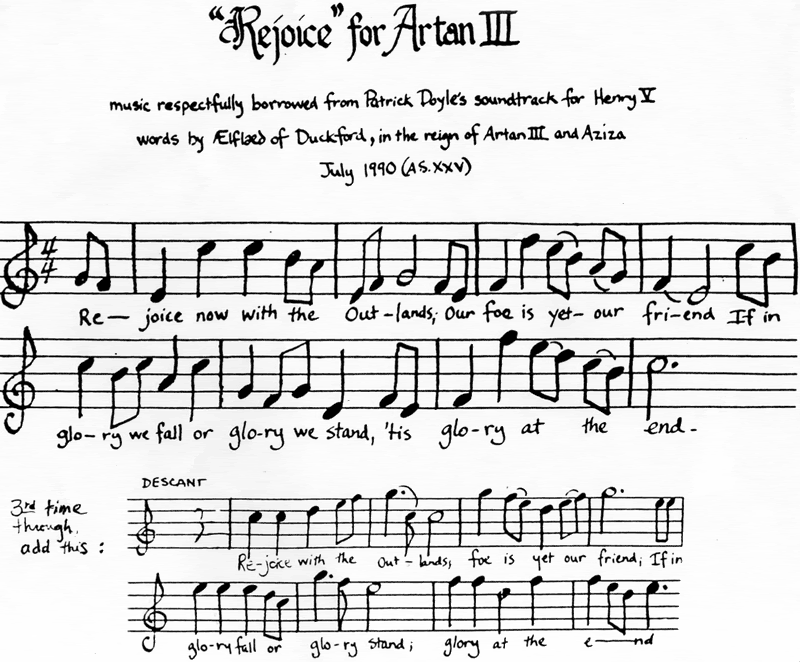Meet People and Learn Things
January 11
original announcement at the bottom of the page
Three leaders, ten other singers and instrumentalists [instrumental parts being the three-note harmony to Edi Beo, played on recorder, reed organ, tuned water glasses (two sets) and kids' bells (two sets)].
By the end of the session, most had played accompaniment to a medieval song, and all had sung an English Renaissance partsong, three rounds in Latin, and "Rejoice" (below), which was prepared in the reign of Artan III and sung tonight during the reign of Artan VI.
Presenters (lead singers) were Mistress Genevre, Master Gunwaldt and Mistress AElflaed
Participants:
Sir Raymond
Lady Alia
Lady Viviana
Lord Magnus
Karl (Charles, a newcomer--in red, at the organ, and on the couch singing)
Bardolf
Asta
Kendrick
Sadie
Madelyn (out of town guest of Bardolf)

This is a good key for instruments, but high for most singers. We've been staring on the D below this. Whatever key you end up in, the descant starts on the last note of the melody, so those who know the harmony can get their pitch from the lead singers. We've found that any more than about 10% of the singers on the descant is too many. If you have fewer than ten singers, have only one descant; in a roomful, three or four has been plenty, if they can sing it clearly, because it's high enough to carry, and you don't want to overpower the melody.
If you want to sing along with the post-battle scene in Henry V, the words used there are: —Ælflæd of Duckford, 1990Non nobis Domine, Domine, non nobis Domine,
It means "Not to us, Lord, but to Thy name be glory given." In the descant, the middle "Domine" in the first line is deleted, and the whole business has been a little simplified for our use.
Sed nomine, sed nomine to da gloria.



